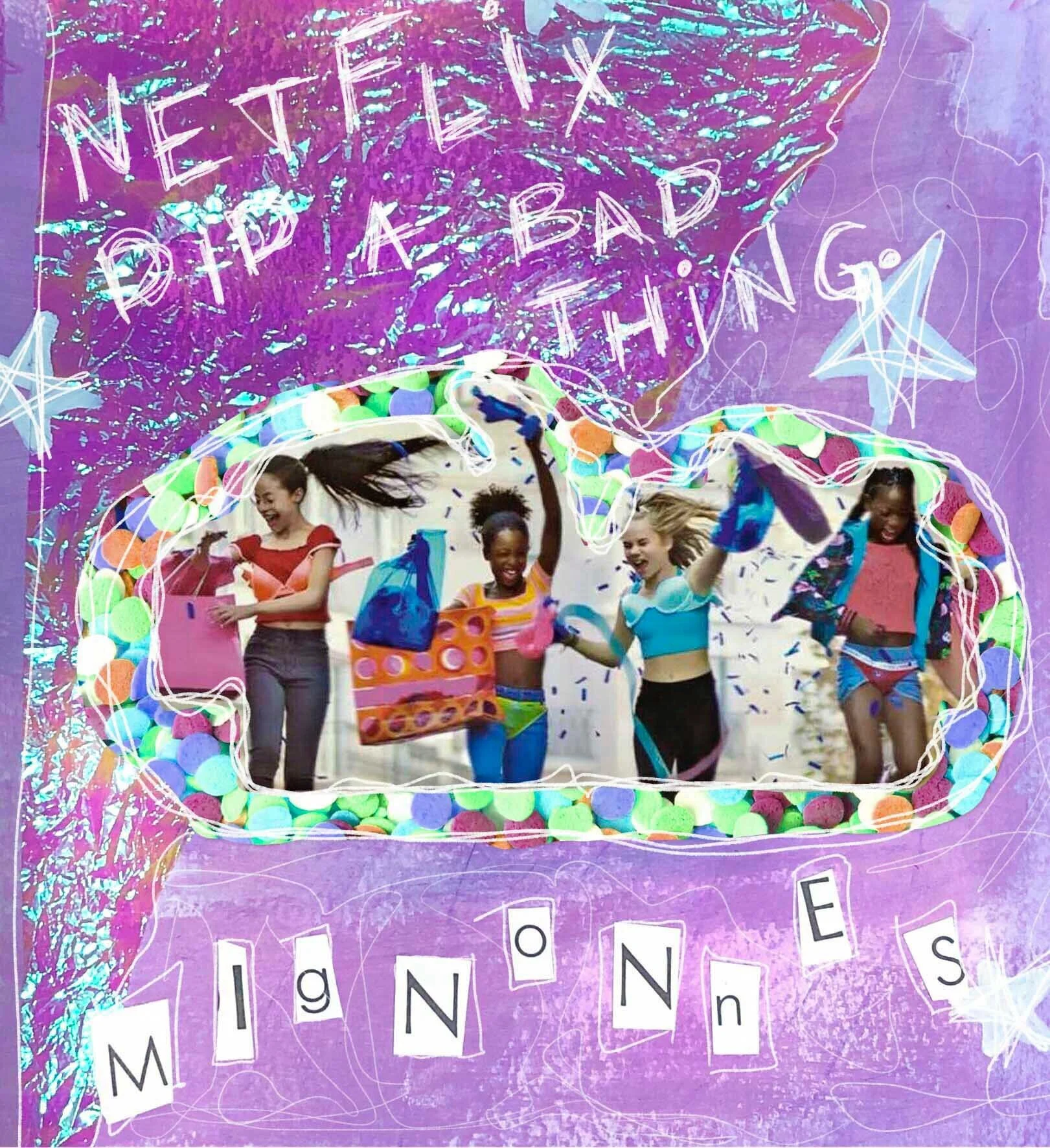Netflix Did a Bad Thing
2020 has been an unusually, wildly bleak year for everyone- but it's not without its pearls. The reemergence of the Black Lives Matter movement, while stemming from tragedy, showed unprecedented solidarity from outside the Black community, and not just in the streets. Brands and businesses have made commitments to uplift their Black creators and employees in a move that promised representation and compensation. However, as we’ve seen with the fallout behind the Bon Appetit Test Kitchen and its bregudgingness to walk their talk, words are often just words. As we return to a sense of normalcy we’ll begin to see who meant what they said during a time of overwhelming collective frustration, and whether true changes will be made widespread across the entertainment industry, or if promises of solidarity were simply a form of lip service.
One particular brand that is already showing its questionable intentions is Netflix. Whilst debatably, Netflix has done more than the average brand to stand with their Black creatives (with the establishment of their Strong Black Lead department in Feb. 2018), but their latest move has me less than thrilled.
If you haven’t already seen, Netflix recently began promotions for the French film ‘Mignonnes’ (translatable to ‘Cuties’ in English), which was picked up from the Sundance 2020 Film Festival. The Netflix version of the movie’s poster captures four young girls scantily dressed whilst posing in various squatting positions. The description catalogues that this is a movie about an 11-year old who ‘discovers twerking’. After it’s feature with Netflix was announced, it wasn’t too long before the internet was on fire. Petitions for the movie's removal quickly began to circulate, coupled with an amassment of people sending death threats to the movie's director, Maïmouna Doucouré; a Black French native who would be marking her debut with this film.
Normally, to a certain extent, the reaction of collective anger would make sense, especially given that the movie was practically marketed by Netflix as an almost twisted form of child pornography. However, upon a second look at the movie from other sources, it becomes clear that this portrayal of the film is far from accurate. ‘Cuties’, as its intended (and successfully pulls off according to several reviews), is a semi-autobiographical story about a young Muslim girl who feels stifled by her strict family traditions and becomes inundated by the dazzling world of dance; eventually falling victim to internet grooming which encourages a pre-adolescent twerk team. So, yeah, the movie does involve the sexualization of young girls but arguably, this is done in critique rather than in promotion. It’s understandable that this wouldn’t be clear upon first hearing of this film from Netflix’s faulty description, and some might even say that the distinction doesn’t matter. Nevertheless, the point stands that Netflix committed what feels like some serious character assassination on a global scale. Many internet trolls (and even well-meaning netizens) would not bother to do further research, much less see the film, before attempting to torch this movie, along with Doucouré’s fledgeling career to ash, but the fault lies with Netflix.
As a distributor, it's Netflix’s job to preserve and protect the filmmaker’s intentions and vision all the way up to launch. In this case, they should've taken particular care because while some might say ‘all press is good press’, for Black women, this is often not the case. This is particularly insidious when considering the historical process of Black girls being over-sexualised in the media and how this narrative has a rippled effect in reality. Why aren’t Black girls afforded the same vulnerability and innocence their peers are often given in films and tv shows? Why would Netflix’s description and trailer of the film make it seem like an echo of the overdone cliche of young Muslim girls feeling “trapped”. Why would Netflix choose to market ‘Cuties’ in a way which only focuses on the adultification of the main characters, instead of highlighting how the film is drawing from the personal experiences of the director herself? Why would they not highlight how the plot essentially critiques the very process of hypersexualisation?
It can be argued that there is a simple answer for that - shock value. The media’s new favourite tool of creating a discussion and a discourse around a new release. To Netflix’s credit, they've begun the work of repairing the damage done, having already changed the film poster and description but despite this, as we know too well, nothing can be truly undone when it comes to the internet; a never-ending chasm which never forgets. Even with people’s attempts at being ‘anti-racist,’ black people are still being hurt in the crossfire. Hopefully, Doucouré makes it out of the fire. It's the least she deserves.
By Jessica Vance
(she/her)
Twitter: @ot4wg
Edited by: Makella Ama

